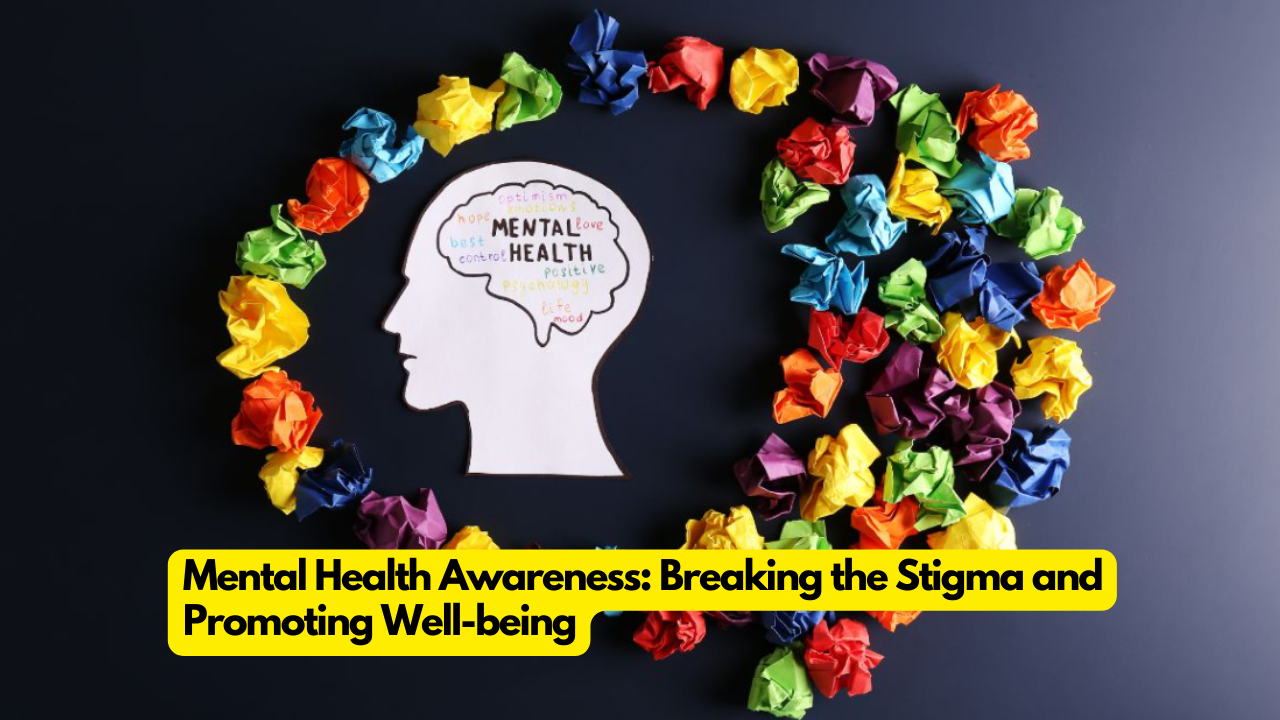Mental health awareness has gained significant traction in recent years, marking a positive shift in societal attitudes towards mental well-being. In the past, mental health concerns were often shrouded in stigma and misunderstanding. However, as a result of advocacy, education, and open conversations, the world is beginning to recognize the importance of mental health and the impact it has on individuals, families, and communities. This comprehensive exploration of mental health awareness delves into the definition, the state of mental health, stigma, the role of advocacy, and the future of mental health awareness.
Defining Mental Health Awareness
Mental health awareness refers to the collective understanding and recognition of the importance of mental well-being. It encompasses various aspects, including:
- Education: Providing information and knowledge about mental health issues, conditions, and coping strategies to the public.
- De-stigmatization: Reducing the stigma associated with mental health challenges, making it more acceptable to discuss these concerns openly.
- Advocacy: Promoting mental health support and resources, advocating for better access to mental health care, and fostering a sense of community.
- Prevention: Encouraging individuals to take steps to maintain and enhance their mental health, just as they would for physical health.
- Support Systems: Building supportive networks and structures to help those facing mental health issues.
The State of Mental Health
Understanding the state of mental health is crucial for raising awareness and promoting well-being. Here are some key aspects to consider:
- Prevalence: Mental health issues are prevalent worldwide. According to the World Health Organization (WHO), depression is the leading cause of disability globally.
- Age and Gender: Mental health concerns can affect people of all ages and genders, but patterns may vary. For example, young adults often face unique challenges related to mental health.
- Global Impact: Mental health affects not only individuals but also their families, communities, and workplaces. It can impact a person’s ability to work, maintain relationships, and participate fully in society.
- Stressors and Triggers: Various factors, such as traumatic events, life changes, and socioeconomic conditions, can contribute to mental health issues.
- Co-occurrence with Physical Health: Mental health is closely linked to physical health. For instance, chronic physical conditions like diabetes or heart disease can exacerbate mental health problems.
- Access to Care: Access to mental health care varies widely across the globe. Some regions lack sufficient resources, leading to significant disparities in care.
Breaking the Stigma
One of the most significant challenges in addressing mental health is the stigma associated with it. Stigma can manifest in various ways, including discrimination, stereotypes, and fear. Breaking the stigma is a critical aspect of mental health awareness. Here’s how it can be accomplished:
- Open Conversations: Encouraging open conversations about mental health reduces the secrecy and shame often associated with it. People need to feel safe sharing their experiences and concerns.
- Media and Representation: Accurate and positive representation of mental health in the media can help challenge stereotypes and misconceptions. Stories of recovery and resilience can be powerful.
- Education: Providing education and information about mental health can dispel myths and foster understanding. Schools, workplaces, and communities can offer mental health literacy programs.
- Empathy and Compassion: Fostering empathy and compassion for those with mental health challenges can help create a more supportive environment.
- Language Matters: Using respectful, non-stigmatizing language when discussing mental health can have a significant impact on public perception.
- Advocacy and Role Models: Mental health advocates and role models who share their experiences can inspire and provide hope to those facing similar challenges.
The Role of Advocacy
Advocacy plays a vital role in promoting mental health awareness. Advocates and organizations work to:
- Raise Awareness: Advocacy campaigns aim to reach a broad audience, disseminating information about mental health and resources available.
- Influence Policy: Advocates work with governments and healthcare institutions to shape mental health policy, ensuring that adequate resources are allocated for mental health care.
- Support Research: Advocacy organizations often fund research to better understand mental health conditions and improve treatment options.
- Community Building: Advocacy groups create supportive communities for individuals and families facing mental health challenges, fostering a sense of belonging and understanding.
- Reducing Barriers: Advocates work to reduce the barriers to accessing mental health care, such as affordability and stigma.
The Future of Mental Health Awareness
The future of mental health awareness holds significant promise, as society continues to evolve its understanding and approach to mental well-being. Here are some trends and developments to watch for:
- Integration of Mental Health: Mental health will increasingly be integrated into overall health care, recognizing the mind-body connection and the importance of comprehensive care.
- Digital Mental Health Services: The rise of telemedicine and digital mental health platforms will make mental health care more accessible, allowing people to access support remotely.
- Early Intervention: Greater awareness will lead to early intervention and preventive measures, reducing the long-term impact of mental health issues.
- Personalized Care: Advances in precision medicine and genetics will allow for more personalized mental health treatment plans.
- Holistic Approaches: A growing emphasis on holistic approaches to mental health will encompass not just therapy and medication but also lifestyle, nutrition, and physical activity.
- Workplace Mental Health: Companies and organizations will prioritize employee mental health, recognizing its impact on productivity and overall well-being.
- Global Collaboration: International collaboration will help address mental health disparities and promote best practices for care and awareness.
Conclusion
Mental health awareness is a crucial component of modern society, as it directly impacts the well-being and productivity of individuals, families, and communities. Understanding the state of mental health, breaking the stigma, and advocating for better care and resources are essential steps in improving mental health globally. As the world continues to evolve its approach to mental well-being, there is hope for a future where mental health is given the same consideration and care as physical health, leading to a more compassionate and supportive society.
